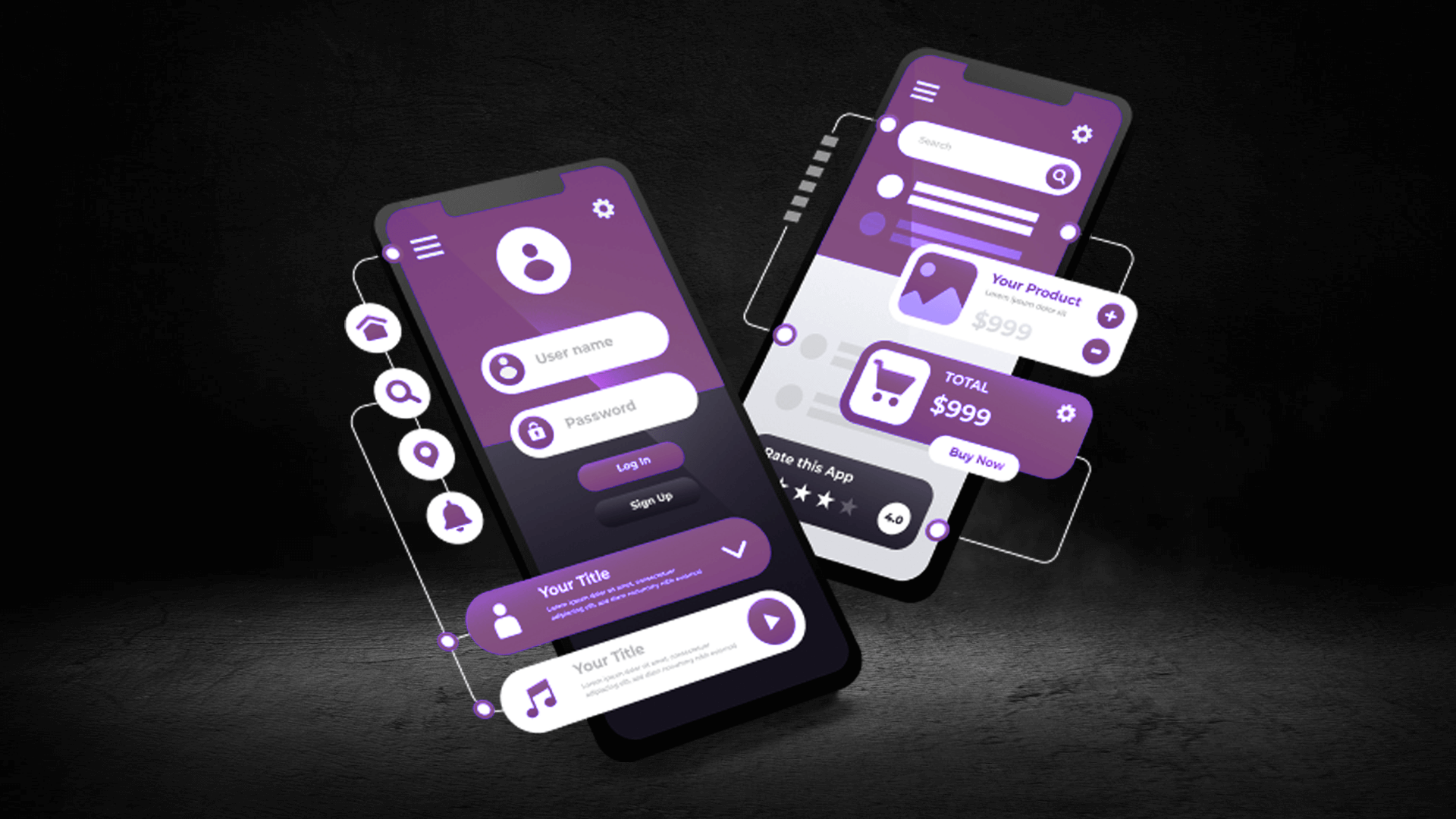Why you need Custom Mobile App Development services
Confused? Let us help in making right decision regarding custom mobile app development services for your business.
Today, the business environment is subject to continual modifications. With everyone nowadays using smartphones, the mobile presence is not a mere option but a compulsion today. Though off-the-shelf products do come across as very glossy, there’s a great deal of reason to go the custom mobile app development services. This blog helps us explore why USA businesses should join hands with a custom mobile app development company in the USA to enhance their operations.
Top 10 Benefits of Custom Mobile App Development
- Tailored Solutions for Unique Business NeedsEach business is surrounded by its unique kind of problems and goals. You get delivered a product not made as one-size-fits-all when you choose a custom mobile app development service. The app is designed in such a way that it flawlessly fits with your business model, processes, and goals. This type of personalization ensures the app serves not just your needs now but is flexible enough to evolve with your business’s growth.
- Improved User Experience? It is said that UX is the make or break for an app. Custom mobile app development services strive toward the intuitiveness and seamlessness of the user experience. The custom mobile app development services providers in the USA will take up the job of understanding your target audience and design an interface catering to their preferences. Such a high level of customization always results in better user engagement, satisfaction, and retention.
- Better Integration with Existing SystemsBusinesses operate with several systems and software for business management and operations. Your application will be built to fit in seamlessly within your existing systems, regardless of whether it is your CRM, ERP, or other software, under the umbrella of custom mobile app development services. In turn, this will not only increase operational efficiency but also reduce possible errors and data silos. The best part of custom mobile app development services is you name the API and the developers gets it integrated easily most of the time.
- Improved SecuritySecurity, for the financial, health, and e-commerce industries, is the most crucial aspect of an enterprise. Off-the-shelf applications often come with pre-built security features, which, in most cases, would not work in your business interest. Custom mobile app development services are advanced in terms of security and are based on the individual needs of your business. A custom mobile app development services providers in the USA understands what the local regulatory requirements are and ensures that your application complies with them, bringing peace of mind to you and your users.
- Competitive EdgeIn a bustling marketplace, differentiation stands out. By using a custom mobile app development services providing companies in the USA, you will be able to develop an application that differs from others. This differentiation can come in the form of a quirky feature, superior UX, or even outstanding performance—anything that puts you ahead to pull and hold customers.
- Scalability and FlexibilityMajor benefits of custom mobile app development services include the scalability factor. Your requirements increase as your business grows. In a custom mobile app development services, everything is designed with an eye on future expansion. It provides easy updates and the implementation of new features. This very flexibility helps to keep your app updated and at par with the utility value, even when your business undergoes evolution.
- Direct Communication ChannelA custom mobile app is unequivocally a channel of communication with your customers. All this is done in one place: personalized messages, offers, and feedback. Custom mobile application development services ensure this communication is streamlined and tuned to your business needs, fostering stronger bonds between your business and customers.
- Higher ROIWhile the upfront investment in custom mobile app development services will be more than going for a readymade app, the long-term benefits far outweigh the costs. A custom app is more likely to attract users, drive engagement, and, therefore generate revenue to yield a better return on investment. When you outsource your project to a custom mobile app development company in the USA, it will help in modifying your app for the local market and hence add more to its profitability.
- Adaptation of Market TrendsThe tech world is fast-moving, and trends come and go. Companies providing custom mobile app development services in the USA knows these trends and will implement them in your app. Whether it’s integrating the latest AI technology or optimizing for the newest version of iOS or Android, custom apps keep you at the very front of innovation.
- Greater Customer InsightsYou have to understand your customers if you want to be successful in business. With custom mobile app development services , you can integrate analytics tools that help gain depth into user behavior. You can interpret data into better decision-making, tailoring of offerings, and improvisation of marketing strategies. You won’t find such insight with most off-the-shelf solutions.
Challenges and Solutions: Developing Custom Mobile App Services
Although the advantages of developing custom mobile apps are sufficiently evident, it is also imperative to be well aware that this approach is not free of issues. Thoroughly understanding these possible issues and ways of handling them is truly a critical way for an app development journey to succeed.
Pre Development Challenges
- Challenge – Higher Initial Costs Probably, the major concern of the business and particularly pertaining to dealing with a custom mobile app development service is the higher initial investment in comparison to an off-the-shelf service. In comparison to such a solution, the development of the custom solution calls for a decent amount of time and resources that may create higher initial costs.Solution: While this may cost more initially, it must be treated as a long-term investment. In the first place, an app tailored just for you will directly suit your needs; it’s therefore going to probably result in better performance, user engagement, and return on investment in the long term. To manage the cost effectively, collaborate with a custom mobile app development company in the USA to clearly delineate the project goals and milestones for the purpose of feature prioritization and budget management.
- Challenge – The Development Time Is LongerA custom mobile app takes some time for development. Unlike other off-the-shelf solutions, which can almost be instantaneously implemented, a custom app requires proper planning, designing, development, and testing. It is hard to wait this long when most businesses need to go to market ASAP.Solution: The key to this problem is found in effective project management and communication. If you get a working company for your application, you will probably have the chance to streamline every function. Agile development methodologies, regular progress updates, and infallible timelines will ensure zero-project deviation, and you will witness minimal delays and effective completion of your mobile apps.
- Challenge – Dealing with Complexity in Requirement GatheringRequirement gathering and definition is one of the most critical concurrent phases in any custom development for mobile apps. Misunderstanding or incomplete requirements might result in project delays, increasing the costs additional end product that does not meet your requirements.Solution: On this note, the custom mobile app development company in the USA should maintain effective communication with your team, ensuring the discovery sessions for in-depth understanding of business objectives, user needs, and technical requirements. Iterative feedback loops within a development process with regular check-ins should be able to see the delivered feel in line with your expectations.
Post Development Challenges
- Challenge – Maintenance after Launch Launching a custom mobile application is just the first step. Rendering maintenance, updates, and support for keeping the application up and safe is an ongoing process. More, for a business, it may prove a real challenge both of time and costs.Solution: A custom mobile app development company with services in USA will always stand by you for every issue your company might be facing with your app. It may be regarding updates in technologies or security measures. Set a maintenance strategy that involves periodical updates, performance checks, and user support, among others, to make sure your app is in good shape so that potential issues do not become serious.
- Challenge – Balancing Customization with UsabilityWhile customization is the very essence of benefit in custom mobile app development, it comes with the dangers of over-complication of the app. An over-complicated app might baffle users, and poor UX is sure to kill adoption rates.Solution: Strike a balance between customization and usability. Work with a custom mobile app development company in the USA that adheres to user-centered design. User research, wireframing, and usability testing will help create an app that meets user needs yet functions usefully. Keep user journeys simple and intuitive, focusing on delivering value rather than being bombarded with features.
Conclusion
Custom mobile app development services provide unparalleled benefit to businesses in the USA, with tailored solutions that stand to offer you a great competitive edge. However, like every meaningful investment, this has to be made with clarity over the challenges and strategies to overcome them. Contact a leading Custom mobile app development company USA , which can help you to go to your target users with such user-friendly solutions in an agile manner. Ultimately, while all of this may require planning for the current investment and relentless ongoing commitment to the custom U.S. mobile app, the long-term values far overshadow these challenges. Be it with user experience enhancement, scalability, security, or anything else, a custom application becomes a powerful enabler for businesses to thrive in the competitive market of the U.S. With the right development partner by your side, your custom mobile app can become an important asset for achieving your business goals.




